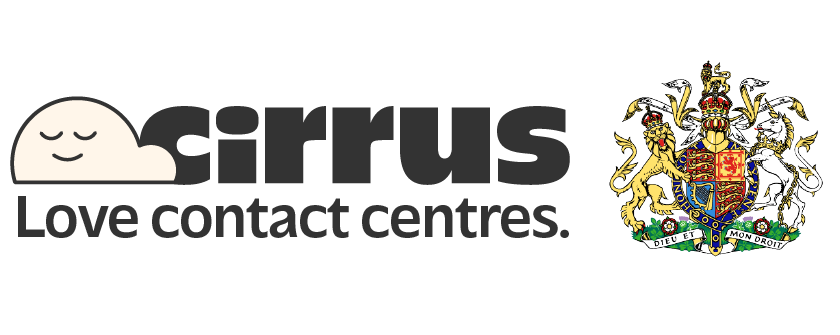Are you just coping, or are you opportunity-grabbing? As contact centres tentatively turn their heads towards Christmas, the old adage rings true; fail to prepare, prepare to fail.
Whether it’s the festive shopping frenzy, tax season, or summer travel bookings, these peak periods can stretch even well-oiled customer service operations to their limits. The challenge lies not just in handling the increased volume of calls, chats, and emails, but in maintaining the high standard of service that customers expect year-round.
Let’s remind ourselves of what’s at stake. Figures from Gartner show that when customers receive value during a service experience, they are 80% more likely to stay loyal to that brand, even when given the opportunity to switch to a competitor.
So in this article, we’ll look at practical strategies for how to steer the contact centre ship through the busiest times; putting the spotlight on planning, staffing, training and technology.
Anticipating increased demand
In customer support, as in life, it doesn’t help putting things off and hoping for the best.
The first step in preparing for seasonal demand is to accurately forecast the volume of enquiries and to identify patterns in call volumes, chat requests, and email enquiries. We recommend that you pay close attention to:
– Daily and hourly fluctuations during peak periods
– The types of enquiries that increase during these times
– Any specific events or promotions that triggered spikes in demand
Past data provides a solid foundation, but it’s also crucial to consider current trends and upcoming events that might influence customer behaviour. It’s not all about traditional holiday shopping periods.
Let’s take the retail sector – higher enquiry volumes may also be expected around popular sales events like Black Friday or Cyber Monday.
Our e-book covered the marriage between technology and customer service in retail. You can read it here
Different industries will have their own unique peak periods. For example:
- Retail: Holiday shopping season (November-December)
- Travel: Summer vacation bookings (Spring-Summer)
- Financial services: Tax season (January-April)
- Healthcare: Open enrollment periods for insurance
By identifying these peak periods well in advance, your contact centre can avoid the scramble that comes with being caught off guard. Take a proactive approach that allows for more strategic planning in areas such as staffing, training, and resource allocation.
Staffing strategies for busy periods
Talking of staffing, having enough manpower to get you through the rush might be the most important consideration.
Once you have a clear picture of when your busy periods will occur and how much additional volume you can expect, the next step is to ensure you have the right number of agents available to handle the workload. Do this by:
- Assessing staffing needs: Use your demand forecasts to calculate how many additional agents you’ll need during peak times. Consider factors like average handle time, desired service levels, and expected agent occupancy rates.
- Offering overtime to current agents: Before you think about outside help, look to extend the hours of existing staff members who are already familiar with your systems and processes. They can be valuable resources during busy periods. Offering overtime can be an effective way to increase capacity quickly.
- Hiring seasonal staff: If you are still looking at a staff shortfall – could you bring in temporary workers to help manage increased demand? Start the hiring process well in advance to allow time for thorough training.
- Utilising remote agents: Expanding your pool of remote workers can provide added flexibility and help you tap into a wider talent pool. This approach can be particularly effective for handling overflow during unexpected spikes in demand.
- Cross-training employees from other departments: Consider training employees from other areas of the business to assist with customer service during peak times. This can provide valuable backup support and foster a greater understanding of customer needs across the organisation.
Using these options, you should have enough agents available to handle the increased workload without overstaffing and incurring unnecessary costs.
Training and preparation
Do you want to make a really good go of this, and use busy periods as a chance to expand your customer base? To truly excel during busy periods, your team needs to be well-prepared and up-to-date on all relevant information. This is where targeted training comes into play:
- Conduct refresher courses on core products, services, and policies
- Provide specific training on seasonal promotions or offerings
- Role-play common scenarios that agents are likely to encounter during the busy period
Crank up the motivation by setting performance targets for the busy season, along with rewards for the best performers.
Implementing technology solutions
If you aren’t allowing technology to ease the strain on your agents, you are missing a trick. Technology will help you to manage high volumes of customer enquiries. You could use
– Chatbots and AI-powered assistants: These can handle simple, repetitive queries, freeing up human agents to tackle more complex issues.
– Omni-channel communication platforms: Integrated systems that allow agents to switch between different communication channels and offer customers more choice.
– Customer Relationship Management (CRM) systems: A robust CRM will come into play during busy periods, providing agents with instant access to customer history and preferences. A winner for both organisation and personalisation
– Workforce management software: These tools can help optimise scheduling and ensure you have the right number of agents available at all times.
These are just some of the technologies contact centres can use to handle higher volumes of enquiries and uphold a high standard of support for customers.
Team morale and support
Keep your team in good spirits. You’ll need high team morale to deliver high-quality service consistently. We recommend the following strategies to support your team during peak periods:
Regular check-ins: Schedule brief daily or weekly team meetings to address concerns, share successes, and provide encouragement.
Recognition programs: Implement ways to acknowledge and reward exceptional performance during busy times.
Adequate breaks: Ensure agents have enough time to recharge, even when volumes are high.
Start early, think smart, be proactive
Every bit of planning you do towards anticipating and preparing for increased demand will be worthwhile.
By thinking of peak periods as an opportunity, rather than a burden, you can make the contact centre an engine room for your business.
How can Cirrus help contact centres? Read testimonials from our customers across several industries call us directly on 0333 103 3333 for more information






